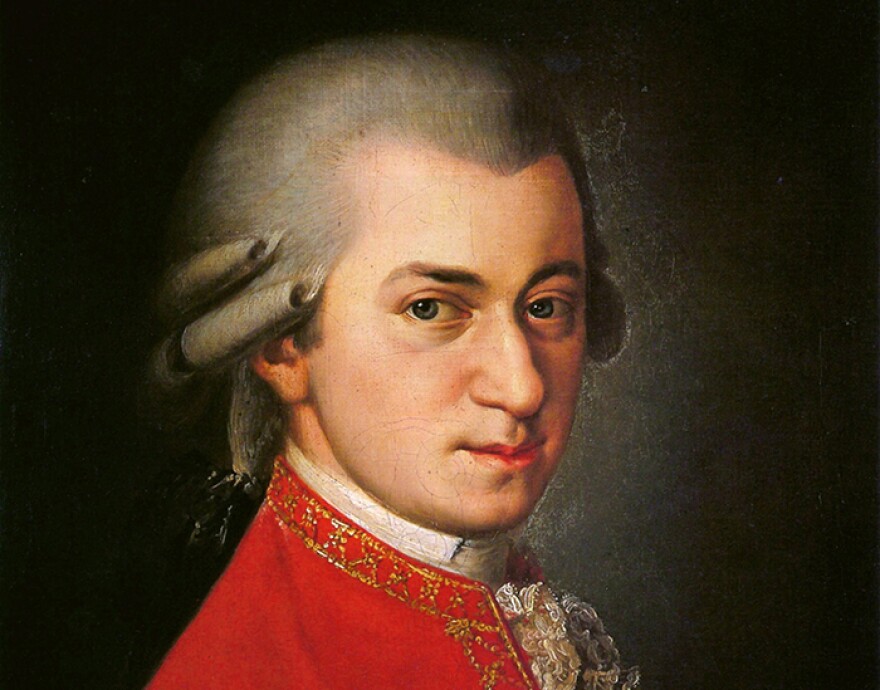Mozart wrote the opening chords of his so-called "Paris" Symphony (Symphony No. 31) specifically to pander to French expectations, which is not to say to pander to French taste. Mozart didn't think the French had any taste. He also thought they were ridiculous for thinking that symphonies that begin this way were especially French.
The opening of Mozart's "Paris" symphony is a classic premier coup d'archet – "the first stroke of the bow" – a short series of unison chords believed to have been invented by the Baroque-era court music master Jean-Baptiste Lully, and by Mozart's time a ubiquitous symphonic opening gambit.
Writing from Paris on June 12, 1778, Mozart told his father that two of his friends liked the symphony "very much." He went on to write, "I too am quite pleased with it. But I cannot say whether it will be popular – and, to tell the truth, I care very little, for who will not like it? I can answer for its pleasing the few intelligent French people who may be there – and as for the stupid ones, I shall not consider it a great misfortune if they are not pleased. I still hope, however, that even a**es will find something in it to admire." (The Letters of Mozart and His Family, trans. Emily Anderson)
Mozart all but insured the favor of his Parisian audience by beginning the symphony with the same premier coup d'archet that had titillated the French since the time of Louis XIV.
"What a fuss the oxen here make of this trick!" he wrote his father. "The devil take me if I can see any difference! They all begin together, just as they do in other places. It is really too much of a joke."
The premier coup d'archet was apparently so much of a joke that one of Mozart's musical associates literally made a punchline of it. In the same letter, Mozart went on to tell his father the story his friend Anton Raaff had told him about a conversation the composer Giuseppe Dall'Abaco had had with an unnamed Frenchman.
The Frenchman asked Dall'Abaco if he had been to Paris and heard the premier coup d'archet. According to Mozart, Dall'Abaco said that he had and that he had heard le premier coup d'archet and le dernier – the final stroke of the bow. The Frenchman asked why he mentioned in particular having heard the final bow stroke. Because "le dernier," Dall'Abaco quipped, "gave me more pleasure."



